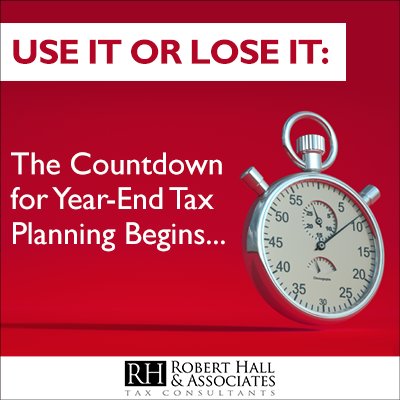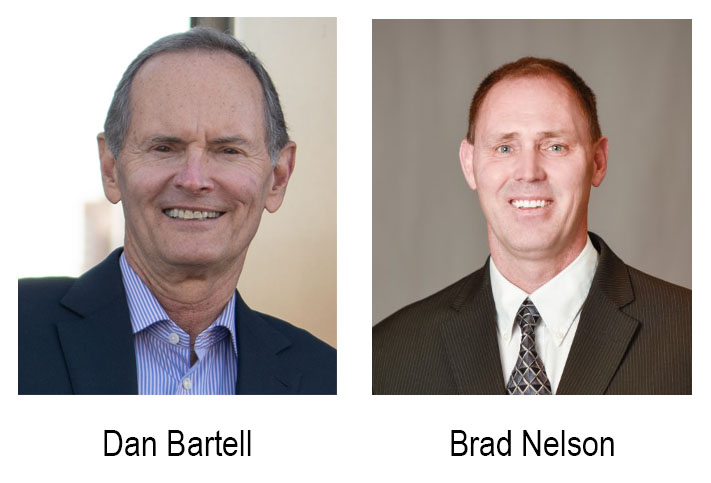Image from Pixabay
By Alex Sylvia
When most people hear the term Individual Retirement Account, or IRA, thoughts of mutual funds, bonds, and ticker symbols typically flood the imagination. Contrary to popular belief, those types of investments are not the only assets that can experience the tax benefits of an IRA.
Whether you have a Traditional IRA (investments grow tax-deferred) or a Roth IRA (investments grow entirely tax-free), both can be invested into a nearly unlimited variety of assets, including real estate.
Conventional IRA providers, such as Fidelity or Charles Schwab, certainly have their place in the Individual Retirement Account market. No one here is arguing that stocks, bonds, and mutual funds don’t have their place in a retirement portfolio. To the inexperienced investor, having a portfolio managed by an advisor may be the risk-averse avenue they should take.
Frankly, we’re not inexperienced investors. We are, oftentimes, experts in our field and [up until this point] we just didn’t realize that our retirement funds could be invested in assets that we already know and with strategies we’ve already mastered.
To invest in real estate using an IRA, a Self-Directed IRA is needed. A NuView SDIRA is no different than an IRA offered by the Fidelitys and Charles Schwabs of the world (in terms of the rules governing them), but where the difference lies is in the custodian of the account. Those previously mentioned custodians have their own investments that they are trying to sell the investor to make commissions, but an SDIRA custodian lets their investors choose their own investments.
Whether it’s fix-and-flips, rental properties, real estate options, or passively investing through secured promissory notes, each of these types of real estate investments can be supercharged with a NuView Self-Directed IRA. Imagine NOT having to pay capital gains tax on your investment returns. Imagine being able to RE-DEPLOY that capital towards your next investment opportunity. Imagine the power of compounding your gains WITHOUT having to pay Uncle Sam each year.
The year-over-year returns can very likely eclipse what you could expect with the same deal outside of a tax-advantaged IRA.
You might be thinking that a 1031 Exchange can get rid of capital gains tax as well, but frankly, that is incorrect.
Yes, a 1031 Exchange can defer capital gains tax and may put you in a position to only pay long-term capital gains tax rather than short-term, but what if I told you that there is a way to completely ELIMINATE capital gains tax altogether?
No 45-day rule, no 180-day rule, no “like-kind” provisions, and most importantly, no day of reckoning where you’ll still have to cut a check to Uncle Sam, paying capital gains tax and ultimately suffocating your growth potential.
Image from Pixabay
Keep in mind that the investor is now the IRA entity, not the person themselves. All deposits, closing costs, and expenses are paid from the Self-Directed IRA. Similarly, all revenue and appreciation flow into the Self-Directed IRA.
Since money must flow to and from the NuView SDIRA, it is critical that the account be established prior to finding the investment property. To refrain from making any “prohibited transactions” – such as personally putting money down for a 100% IRA-owned property – it is required that any deposits put down on an investment property come from the SDIRA. Making a prohibited transaction typically causes a taxable event, penalty, and possible distribution of your entire IRA (see IRS Code 4975 for more details).
To avoid this mistake, establish your NuView SDIRA before you find your investment property, and at least have it funded with enough money for a deposit. Once the property is under contract, you can begin the transfer or rollover process to move the rest of the needed funds into your account.
While this strategy of buying investment properties in a retirement account does restrict you from taking personal payment from your investment growth, you could still consider making short-term investments personally, and putting your long-term investments in a tax-advantaged vehicle like a Self-Directed IRA.
Keep in mind, however, that if you make your real estate investments in a NuView Self-Directed Roth IRA, your investment earnings and any interest gained needs to remain in the account until the age of 59.5, but you can always personally withdraw your after-tax contributions at any time, tax and penalty free. Some circles liken the Roth IRA to a “savings account on steroids” because of this feature.
But what can be accomplished with a $6,000 contribution limit per year ($7,000 if you’re over the age of 50)? The answer is – quite a lot. If you’re a seasoned real estate investor with experience using leverage, real estate options, or buying debt-leveraged property, you may be able to accomplish a lot with those low contribution limits.
However, if you happen to be self-employed (which many real estate investors are), you qualify for a handful of employer plans that have much higher contribution limits but are only available if you have self-employed earned income.
Some examples of employer plans would be a SEP IRA or Solo 401k (soloQRP), each with a maximum contribution limit of $58,000, or a SIMPLE IRA with a maximum contribution of $13,000.
If you are not self-employed and wouldn’t qualify for these plans, you also have tools at your disposal to get involved with SDIRA real estate investments.
Image from Pixabay
One option would be partnering. This could be partnering with other retirement accounts you have or with a family member’s or friend’s IRA. Another option would be getting an IRA loan, also called a “non-recourse” loan. Either one of these options could provide you with the buying power you need to leave the stock market behind and invest in tangible cash-flowing assets.
Now, to the real estate investor or syndicator who’s just in the market for other people’s money to fund their personal real estate deals, IRAs are one of the largest buckets of money available to source capital from. Since it is well within the bounds of IRS rules and regulations, IRA funds can be loaned to other individuals (such as real estate investors) or entities (such as syndications).
On that note, if you are an investor who wants to get involved in real estate without doing the heavy lifting, lending your IRA funds to a real estate investor or syndication may be the route for you.
At the end of the day, if you or someone you know is unhappy with their stocks, bonds, or mutual funds, be aware that the capital can be redeployed towards a TANGIBLE cash-flowing asset.
Investing outside of the stock market can help you or others reach the pinnacle of true diversification, and what better way to do so than taking a skill set you already have and applying it in a tax-sheltered environment like a NuView SDIRA?













































